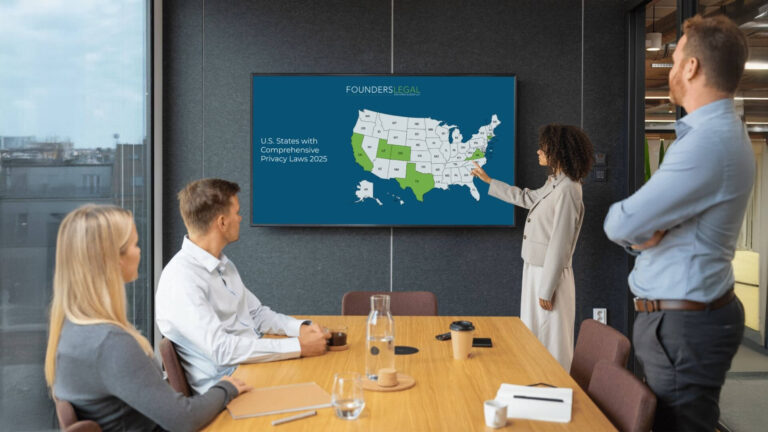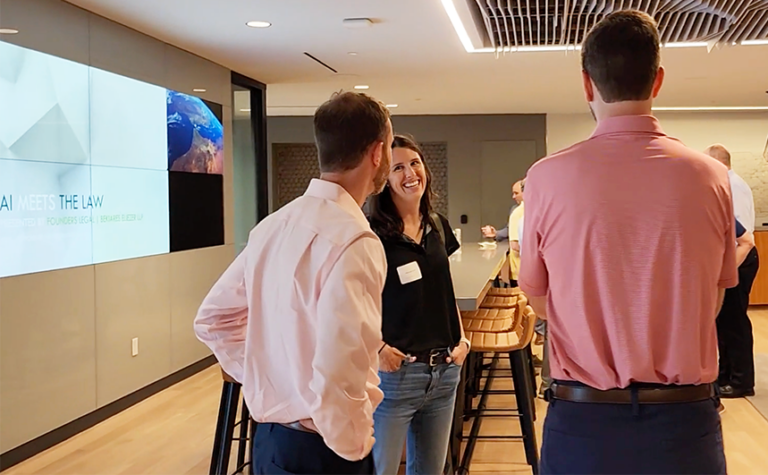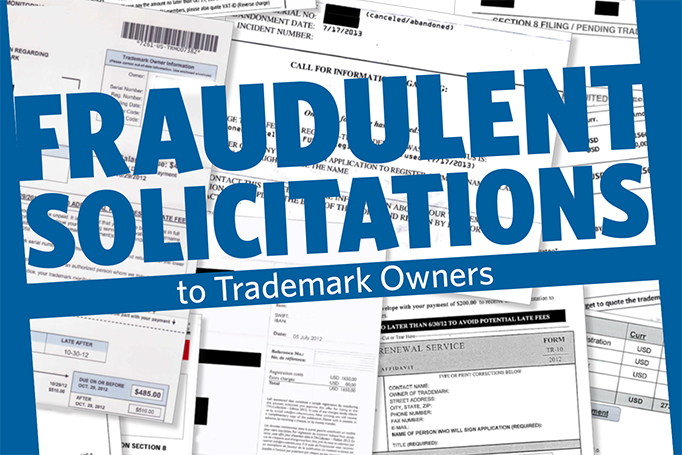US State Privacy Laws: What Businesses Need to Know
Stay compliant with evolving US state privacy laws. Learn which laws apply to your business and how to manage risk across jurisdictions

Stay compliant with evolving US state privacy laws. Learn which laws apply to your business and how to manage risk across jurisdictions

Our event series offers a unique setting to learn and discuss emerging legal themes while building relationships with fellow attorneys who share a commitment to growth and exploration.

Explore the strategic nuances of 83(b) elections with our guide designed to help employees and founders navigate tax implications, maximize benefits, and understand risks associated with equity in holiday bonuses. Gain insights into making informed decisions and optimizing tax outcomes.
The USPTO’s Semiconductor Technology Pilot Program (STPP), announced on November 30, 2023, represents a significant initiative to boost innovation in semiconductor manufacturing. This program, supporting the CHIPS for America program, aims to expedite the patent examination process for specific semiconductor innovations.

On December 13th, 2023, the United States Patent and Trademark Office (USPTO) officially announced its selection of Atlanta as the site for its new Southeast Regional Office. This pivotal decision underscores Atlanta’s emerging status as a key hub for innovation and technological advancement, signifying a momentous occasion for both the city and the broader region.

On December 13th, 2023, the United States Patent and Trademark Office (USPTO) officially announced the selection of Atlanta as the site for its new Southeast Regional Office.
The team at Founders Legal is honored to recognize the vital role our community played in this remarkable achievement. Our campaign to champion Atlanta’s bid for the USPTO Southeast Regional Office was a collective endeavor, deeply rooted in the community’s active participation and unwavering support.

Several clients have reported convincing scam calls from individuals claiming to be representatives of the USPTO. These scammers are employing a technique known as “spoofing” to make their calls appear legitimate. They manipulate caller ID systems to display false information, misleading recipients into believing they are in communication with the USPTO.

Explore the legal implications of meme culture and the Fair Use Doctrine’s role in commercial use. This guide highlights key copyright factors, recent case law, and the significance of professional legal advice for businesses navigating digital intellectual property rights.

The First-Time Filer Expedited Examination Pilot Program from the USPTO fast-tracks the first Office action for first-time utility patent applicants. This removes barriers, allowing inventors to make decisions sooner. The program aims to make the patent system more accessible and encourage innovation from diverse individuals.

Our event series offers a unique setting to learn and discuss emerging legal themes while building relationships with fellow attorneys who share a commitment to growth and exploration. Our events offer attendees an opportunity to earn free CLE credits, making them a rewarding experience for any legal professional.
End of content
End of content